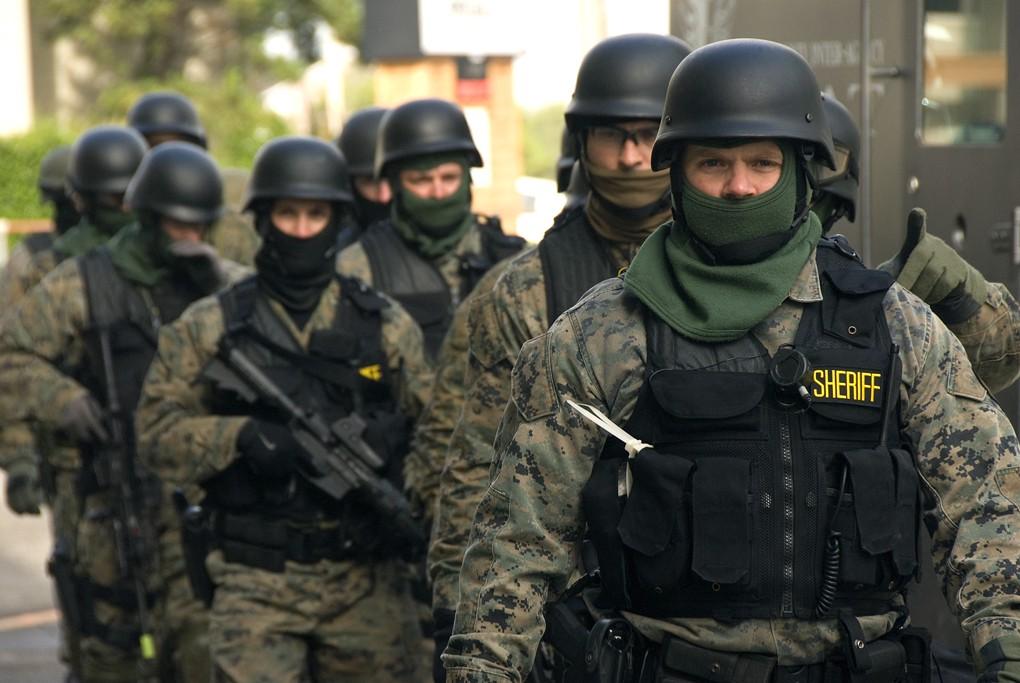The Hidden Police Violence Epidemic Behind a ‘Swatting’ Death
On December 28, 2017, 28-year-old Andrew Finch of Wichita, Kansas, opened his front door to a horde of shouting police officers. Ten seconds later, he was fatally shot in the head — yet the officer who pulled the trigger isn’t the one being charged with his death. The events of that tragic late December day were set […]

On December 28, 2017, 28-year-old Andrew Finch of Wichita, Kansas, opened his front door to a horde of shouting police officers. Ten seconds later, he was fatally shot in the head — yet the officer who pulled the trigger isn’t the one being charged with his death.
The events of that tragic late December day were set in motion by three Call of Duty gamers fighting over a $1.50 wager. One gamer, Tyler Barriss, prank-called Wichita 911, saying he was suicidal, had killed his father, and was holding others hostage at the address that one of the other gamers had provided as his own. But the target of the prank didn’t actually live there; Andrew Finch and his family did.
At approximately 5 p.m. that day, 10 Wichita police officers and three deputies surrounded the house. When Finch exited the home to see what the commotion was about, he threw his hands into the air in surrender. But then, after becoming startled, he put one hand down for a second. That’s when a police sniper fired from 50 yards away, killing him.
Immediately after shooting Finch, the officers ordered his family to come out of their home with their hands up, and even forced his young niece to walk over her dying uncle’s body, according to a civil rights lawsuit filed in January in federal court on behalf of Finch’s mother. The family members were then handcuffed and forced to wait outside in below-freezing temperatures for over an hour, interrogated, and released without explanation.
The prank caller, Barriss, was tracked down in Los Angeles less than 24 hours later and charged with involuntary manslaughter, giving false alarm, and interference with a law enforcement officer. He faces 11 years in prison. In the wake of the incident, reporters from national media outlets like the New York Times, CBS News, and NPR wrote stories about “swatting,” a gamer trend where players like Barriss call in fake emergencies to 911 which sends SWAT teams to a rival’s house as a prank.
The headlines, however, obscured the fact that there was no justice for Finch. On April 12, four months after the shooting, Wichita District Attorney Marc Bennett announced that he would not bring charges against the officer who killed Finch. The city has refused to name the officer who fired the fatal shot.
According to the Finch family complaint, his killing at the hands of the Wichita police was unusual only because it stemmed from a prank. Police shootings are disproportionately common for a city its size, the complaint says. Wichita has a ratio of one shooting for every 120 officers, about 11 times higher than the national average. Wichita officers were involved in at least 29 shootings between 2010 and 2015, 15 of which were fatal. Nonetheless, the DA has determined that every one of these shootings was justifiable. And in 95 percent of police shootings there, Wichita officials have also shielded the officers’ names from the public.
“This pattern and practice of concealing misconduct and concealing the identities of officers involved in misconduct encourages officers to believe that their unconstitutional behavior will be protected,” the Finch family said in its complaint, “and that they will suffer no discipline, thereby emboldening them to act with impunity.”
The Finch family argues in its lawsuit that even if the police faced a true hostage situation at Finch’s house, shooting whoever came to the door violated departmental policy. But despite clear Wichita Police Department guidelines regarding how volatile situations involving mentally ill suspects should be handled — including instructions that “in a stressful situation, a police member’s first reaction should be to determine whether the objective can be accomplished without the use of a weapon” — the Wichita DA has only once determined that an officer-involved shooting violated department policy over the past two decades.
Perhaps this is because the city’s police shooting investigations are hampered by strict requirements in its police union contract. According to data compiled by the Black Lives Matter-affiliated Campaign Zero, Wichita allows officers to meet privately with union representatives who can coach them on what to tell investigators before being questioned about a shooting. The city also allows officers to record their own interrogations, tightly restricts what interrogators can say or do in questioning, and erases officer misconduct files. Interviews are conducted by the officer’s co-workers, rather than by independent or state investigators.
“How is it remotely justice when the wrongdoers are investigating themselves?” Finch’s mother, Lisa, asked City Council in March.
The Finch family has continued to fight for justice, even after the DA announced his decision to not charge the officer who fired the fatal shots, with some measure of progress. A newly formed citizens advisory board will review the case, and the department says it is conducting an internal investigation.
“The issue of my innocent son being shot through the screen door is not going away any time soon,” Lisa Finch warned the council.
